#i wont gatekeep these photos
Text
𝐭𝐢𝐦𝐞𝐬 𝐰𝐡𝐞𝐫𝐞 𝐢 𝐭𝐡𝐢𝐧𝐤 𝐆𝐰𝐞𝐧 𝐚𝐧𝐝 𝐡𝐞𝐫 𝐜𝐡𝐚𝐫𝐚𝐜𝐭𝐞𝐫𝐬 𝐥𝐨𝐨𝐤 𝐥𝐢𝐤𝐞 𝐩𝐢𝐞𝐜𝐞𝐬 𝐨𝐟 𝐚𝐫𝐭
𝐩𝐚𝐫𝐭 𝟏 | 𝐩𝐚𝐫𝐭 𝟐 | 𝐩𝐚𝐫𝐭 𝟑 | 𝐩𝐚𝐫𝐭 𝟒 |
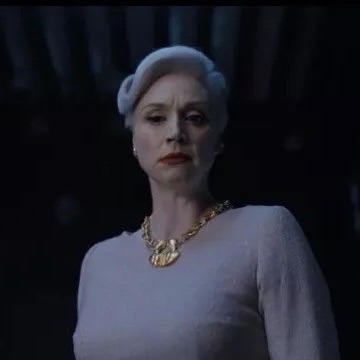
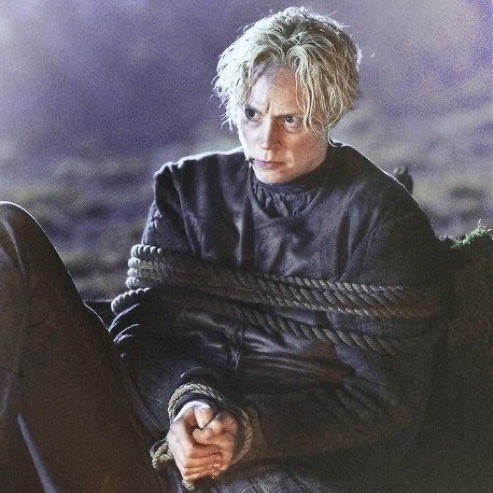



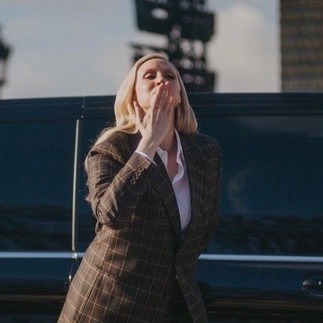
i'll still never get over her
a small post for yall since i've been consumed with college the past couple days - ill be caught up soon
x,
~ 𝐜𝐫𝐨𝐰𝐯𝐲𝐧
˗ˏˋ ★ ˎˊ˗
#larissa weems#principal larissa weems#principal weems#gwendoline christie photo album#gwendolineuniverse#gwendoline christie#brienne#brienne of tarth#lady brienne#ser brienne#brienne the beauty#brienne tarth#i really will never get over this#i have so many more#there will be more posted at some point#i wont gatekeep these photos#im hoping the quality doesnt get messed up low key#but here you are for now#i love her
126 notes
·
View notes
Text
I COME WITH OFFERINGS
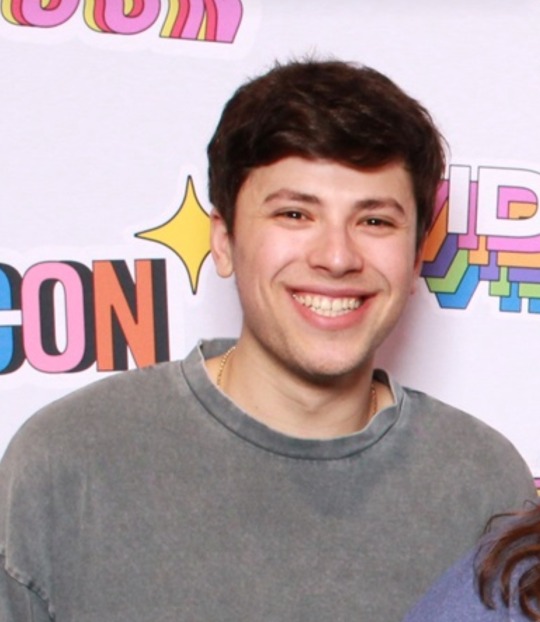



#LIKE UNFORTUNATELY THE PHOTOGRAPHER IS GOING TO HELL BECAUSE ITS THE WORST PHOTO OF ME EVER BUT#I WONT GATEKEEP GEORGE
151 notes
·
View notes
Text
edwin portrait bc i just found the og photo a few days ago :3
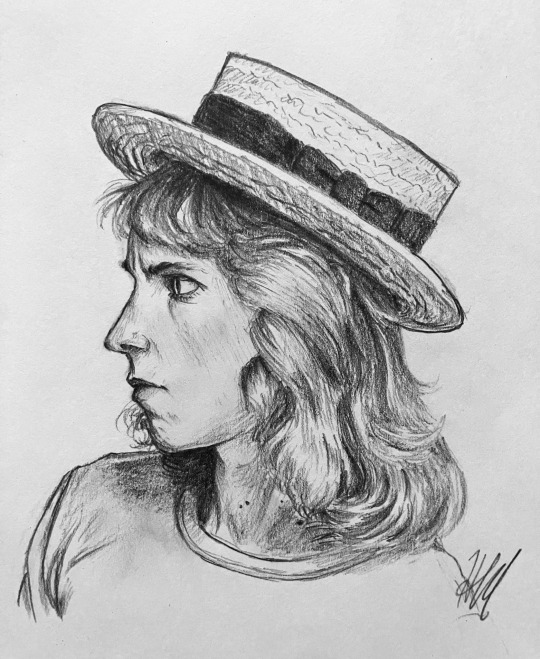
#maybe ill gatekeep the og photo maybe i wont…#i would add it to this post but then ill compare the drawing to the og photo too much and find mistakes 😭#eddie jobson#edwin my beloved#uk band#frank zappa#70s#prog rock#prog rock fanart#my art
32 notes
·
View notes
Note
Us: *waiting for sota to upload his ketosota date at blue cave picture*
Sota: *uploads a picture that features only himself*
this is fine................
I KNOWWWW IT WAS LITERALLY THE FIRST THING I LOOKED FOR WHEN I WOKE UP I WAS SO BETRAYED
it was even the exact same pose like.... come sota thats just lazy......... >_>
#asks#come on sota im literally 1000% sure u took photos both for and with keito#dont be a gatekeeper thats sO MEAN#give them to meeeeee i wont tell anyone i promise🙏🏻🙏🏻🙏🏻
2 notes
·
View notes
Text
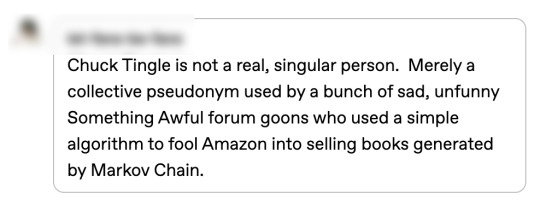
this was a comment on one of my post from a recent live event. it was photos of joyful queer buckaroos celebrating together and proving love is real through creation, community, and a trot of love. most important I AM LITERALLY IN PHOTO AS A REAL FLESH AND BLOOD HUMAN
it got me thinking about how DEEP AND VICIOUS the irony poisoning of these early internet communities goes. the way buds like this cannot fathom someone just being a sincere person unrelated to their OWN old days of cynical posting. it is fascinating, and i will admit, sad too
despite a DECADE of work, countless live events, 350 tinglers written well before large language models were a thing, there are still people who cannot imagine someone like me could exist. it is a strange place to be. not just part of me, but my entire EXISTENCE is often gatekept
it is easy to say ‘well chuck your art IS strange’ but honestly i think it is more than that. magical realism is common. there are stories about dinosaurs and bigfeet and unicorns. this scoundrel reaction is about two unspoken things: my art is neurodivergent, and my art is queer
heres the thing: I WILL BE FINE. what concerns me is not an issue of MYSELF, it is a concern for the other young outsider buckaroos who see comments like this one and think ‘is that what they will say if i express MY unique way? will i be dehumanized like this at every turn?'
i will be honest, i cannot say that WONT happen, but i CAN say this: for as deep as this irony poisoning goes, it is slowly dying. the way i was treated at the start of my career is LIGHTYEARS DIFFERENT from the way i am treated now. there is a massive shift towards sincerity
BUT MORE IMPORTANTLY. to young artists trotting up, the things that i am harassed over and doubted for and made fun of for are NOT tangental to what has made me successful, THEY ARE LITERALLY THE SAME THINGS THAT HAVE MADE ME SUCCESSFUL. YES I AM STRANGE, WHAT OF IT?
the things that you tuck away for fear of a review that says ‘there is a PROBLEM with this art because it has always been done another way’ THOSE ARE YOUR SUPERPOWERS. the gatekeepers want you to tuck those parts of yourself away because THEY TUCKED AWAY THOSE PART OF THEMSELVES
never forget that your unique way is PURE UNFILTERED 100 PERCENT ROCKET FUEL. it will stick out (maybe, if you are lucky, scoundrels will even say that someone like you could never actually be real), but sticking out isnt so bad when you are waving the flag of love.
in fact, when youre waving the flag of love, sticking out is pretty dang cool. what are flags for, after all? LOVE IS REAL BUCKAROOS. thank you for reading, and if you enjoyed this long post then please consider preordering BURY YOUR GAYS.
LETS TROT
5K notes
·
View notes
Text
marauder characters red flags teehee
james: one of them rich, only children who tries to cosplay poverty. like he will live in a share house when he doesnt need to, eat two minute noodles every day when he doesnt need to, complain about his rent when he can totally afford it, and repost sibling media but will tag his friends instead ☠️
lily: has y/n syndrome
sirius: not a surprise to anyone, but he will do the most heinous thing and will say ‘it was just for laughs 🤷♂️’ when questioned about it
remus: SO niche but is the type of bitch to run the socialist club and hold meetings but to get in the entry fee will be like $60
peter: type to say “that’s ok. no one really likes me anyways 🚶♂️” when he gets rejected (he’s actually being genuine about it…. which is still icky tbh)
severus: no skincare routine, no hair care routine… seriously eating two meals a day and sleeping seven hours a night his idea of self care
regulus: gatekeeps anything he likes and if he finds out you have a shared interest with him…… be prepared for 28 questions to prove you’re a ‘real fan’.
barty: type to scratch his butt and then sniff his hand
evan: type to ask for a whimper audio. or ask for a thug shake.
marlene: would ransack a church. probably would do it during a sermon too
dorcas: purposefully puts on a mommy voice for clout💀💀
mary: you’re ranting to her but she always has to give you advice. and then she asks you ‘was my advice good? everyone says my advice is the best ☺️’
emmeline: will cook/bake you something bc she wants to do something nice for you but everything she makes is literally poisonous and will give you food poisoning (and she manages to do this by accident every time, which is even more impressive)
lucius: would call someone a peasant, and it may seem like he’s just teasing, but he quite literally isn’t. he fucking hates the poor.
narcissa: thinks gaslighting is a love language
fabian: when asked ‘do i look fat in this?’ he just laughs. he wont even answer you. he’ll just laugh
sybill: will think she’s oppressed because people dont like her being a seer 🥺
alice: will offer to cut her friend’s hair and will give them the most ugly ass cut of their life
frank: posts gym workout photos on his ig
pandora: people talk about the ‘2020 cringe era’ but in all truth thats just her rancid personality
xenophilius: is an adult with bracers. his name is also xenophilius 🤮
petunia: is the type to ask in a really scarily angry tone “im sorry, am i boring you?” if you yawn around her whilst she’s talking
gilderoy: would say some insane type of shit when doing his makeup like “mirror mirror on the wall” or something. and be lowkey serious about it. he’s fucking delulu bro.
#all based on. icks that i have. idk. couldnt just stop at golden trio and next gen characters could i?#i forgor i had this in my drafts. characters like andromeda and bellatrix are pre-marauders in my head so they go in a diff post..#hp#marauders#james potter#lily evans#severus snape#sirius black#remus lupin#peter pettigrew#regulus black#barty crouch jr#evan rosier#marlene mckinnon#dorcas meadowes#emmeline vance#mary macdonald#lucius malfoy#narcissa black#fabian prewett#sybill trelawney#frank longbottom#alice longbottom#alice fortescue#pandora lovegood#xenophilius lovegood#petunia dursley#petunia evans#harry potter#rewriting
59 notes
·
View notes
Text

caffeine-versations #1:
this is very accurate and applicable for someone like me. reason is, I have few people in my life that has the same music taste like mine. I love being with them but when it comes to music, I am more interested on meeting new people with exquisite or much better music taste than I do + you can never really be alone at gigs!
I remember the first time I attended a gig alone was my 2nd month being an employee, just months after graduating from college and scared of being alone in a crowded room. still a baby from the reality and how this life works. it was a Franco gig at 19 East circa 2019, I worked as a Bank Teller so I went wearing my uniform, was a bit shy cause its skirt day and I stood there as they begin to perform. a guy approached me and hand me a bottle of smirnoff and guess what.. he’s alone, too! I enjoyed listening to his stories and never felt awkward the whole time. I was actually hesitant if I should get along with him because he’s a dude and I’m an overthinker but somehow, he’s the first human being who made me feel that going alone isn’t really that scary, that its not really bad stepping out on your comfort zone. wherever he is, I hope he’s doing well and I’m hoping I could see him again. I owe him a two bottles of smirnoff, though! he was a good friend to me at the moment. it was also the first time I saw Victor (Franco’s drummer) upfront, he was like 5 steps away from me. I wanted to approach him just like everyone does and take a photo with him but then I froze and I just watched him walk and leave the place. I think I died for a sec haha he’s a happy crush of mine since highschool lolol of course Islaw, Dave and Tyopolds are such a fine men with great talent, thankful for Franco’s music. jah love ❤️ (I wanna gatekeep them before and never told anyone of my classmates what’s their band name but yep, they deserve to be recognize by everyone)
I also went to a free concert of UDD at Starmall SJDM. I really wanted to go because I love them so much that I’m thinking if I should ink one of Tadhana’s lyrics on my back: “Nakayapak at nahihiwagaan.” I nearly cried when I heard Indak and Unti-unti live. Armi sounded so good and I got a very good spot that I could see each of them while performing. I feel like I’m the only one watching who knows the lyrics each of their songs while being dramatic af. the whole band was rushing to get off the stage after their performance, didn’t get to see Armi closely but even though my eyes aren’t 20/20 I know she’s pretty! I hope she knows I always get a 100 score on videoke whenever I sing “Oo.” yes, Ms. Armi should be proud! chariz. kidding aside, that was the first and last gig I saw them performing live. if you would ask me what’s my all-time favorite UDD song, it would always be “Anino,” the one that is not released on Spotify and uploaded by a fellow fan on YouTube (hope she wont delete it or else.. 🔪) and I believe that UDD released a studio version of Anino way back 2019 but I like the other one more. raw, and would cut your heart into pieces. I miss UDD, come back please? *sad twerking*
after that, it continued. sometimes I still go out with a friend, max of 3 + I don’t really like when someone would ask me to go to public toilet rooms with them while the band is performing, chz.
I hate missing out. going to gigs alone— one of the best thing I’ve done xx
[ Credits to @gigsandtours on IG ]
0 notes
Text
A Picnic against Harbor Drive: Neighborhood Associations and the Fight Against Freeways
In his book “Portland in Three Centuries,” historian and PSU professor Carl Abbott writes: “On a summer day when the mountains and coast beckoned many Portlanders, 250 adults and 100 children spread their blankets and opened their coolers and baskets on a barren strip between four lanes of busy traffic on Front Avenue and an even busier four lanes on Harbor Drive.”

This postcard shows Front Street to the left, a grassy median, and Harbor Drive plus offramps. Steel Bridge in the background. From here.
The picnic took place on August 19th, 1969, organized by a fresh group of political activists. From the 1950’s through the 1970’s, traffic planners got a little highway crazy: a 1955 report by the Oregon Department of Transportation recommended the construction of 14 new freeways in the Portland Metro area. Even after Interstate 5 was constructed on the east side of the river, city planners wanted to expand Harbor Drive on the west side of the river, completely cutting off pedestrian access to the Willamette downtown.
Harbor drive no longer exists- today, we know of it as Tom McCall Waterfront Park. Though the park bears Governor McCall’s name, we can thank the efforts of a few civic-minded Portland families hosting a picnic on a busy median on a summer day. They called their group Riverfront for People.
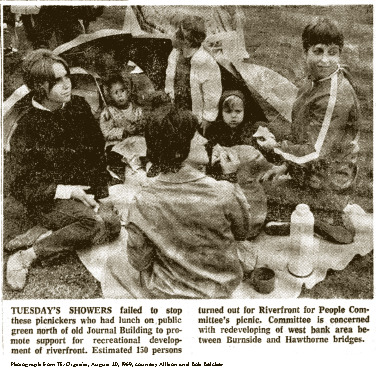
Here’s a photo from one of the picnics. From here.
The picnic was the first of a number of such demonstrations over the course of that summer. The protest was organized by Allison Belcher and her husband Bob. Allison said, “I was ironing clothes, as was the wont of females to do of that time and I heard on the radio that the Highway Commission was going to put this road right down through where the Oregon Journal property was along the river, so I called up Ira Keller [chairman of the Portland Development Commission—one of the city’s most powerful, mercurial figures] on the telephone and I said, ‘what are you doing, why are you doing this?’ He said, ‘You shouldn’t be bothered—you’re just a housewife.’” This quote and many of the other quotes from the RFP organizers come from an excellent interview conducted by Tim DuRoche, here).
Allison started making phone calls, reaching out to people she had met through a shared interest in the upcoming 1970 City Council election. In the meantime, her husband Bob got in touch with his architect coworkers- folks interested in the historical preservation of west-side waterfront buildings and folks with a vision for a more vibrant Portland than the east side riverfront’s maze of concrete represented.

This is an image from a 1932 planning report by Harland Bartholemew. Notice the riverfront green space on both sides of the river. During the war, the eastside riverfront would be lost to industrial uses and freeway I-5. Notice the “city beautiful” style buildings. City of Portland Archives.

This gif from this bikeportland article shows ODOT’s proposal to widen I-5 along the eastbank of the river even further, creating a ridiculous overhang over the eastbank multi-use path.
The picnic worked. The Riverfront for People organizers got the attention of Governor Tom McCall, who, even before the picnics, had spoken about his hope of creating a public greenspace along the waterfront. The alliance between the regular folks- the 350 people who showed up to have summer picnics on a highway median- and the political establishment built a powerful coalition able to resist the 1970’s hunger for more miles of concrete.
However, despite their new and powerful ally, Harbor Drive wouldn’t officially close until 1974. That’s five years of difficult political work to achieve their goal. This political work helped inspire a new generation of citizen leaders in Portland politics. Carl Abbott writes: “The process of neighborhood planning between 1957 and 1967 was as straightforward as its content. City Planning Commission reports make no reference to neighborhood groups or citizen involvement. They were prepared by city employees for their colleagues in city hall.”
However, as part of the Harbor Drive campaign, Belcher and others began showing up to city hall meetings, demanding to have their opinions considered in the decisions that shape their city. Belcher said, “It was something new for Portland to go down to City Hall and testify—everything had always been run by these people who’d been in power for a long time and they didn’t discuss it with anyone. There really hadn’t been much change or access up to that point.” PSU professor Ernie Bonner notes that 120 people attended the January 14th, 1970 meeting of the State Highway Commission, where a closure date for Harbor Drive was officially set.
Harbor Drive helped usher in a new era of citizen engagement in local issues. Allison and Bob Belcher protested alongside Vera Katz (namesake of the Eastside Riverfront Recreational path) and Gretchen and Steve Kafoury (Parents to commissioner Deborah, and longtime political officeholders themselves) to demand that the City Club of Portland allow women as members. Bob Belcher: “What began with Model Cities and then Neil Goldschmidt coming on to Council … was part of this something wonderful that was happening in Portland of that time. It was post-Kennedy—there was a huge energy in the air … there was a lot going on, all that turmoil in Vietnam, but there was an underlying current of all these things on a national level. …Our great virtue was the times energized us—it was a hopeful time. We were pretty outraged and we were young enough that we thought we could make a big noise about this.”
Their ‘young outrage,’ ability to build connections with establishment politicians like McCall, and savvy campaigns for councillors Anderson, McCready, and Goldschmidt would create the initial energy required to defeat the proposal for the Mt. Hood Freeway when it came up in 1975, and would then help to divert the funds necessary to create the first branch of the MAX light rail line in the metro region. Activists were also successful in defeating a plan to build a 12-story parking garage on the site that is now Pioneer Courthouse Square.

A picture from the early days of the Marquam Bridge. Photo here.
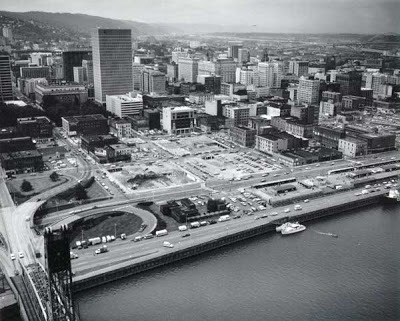
The west side of the city, with Harbor Drive. Look at all of that open space between the Standard Insurance Building on 5th and the riverfront! Photo Here.
In 1973, councilman Goldschmidt became Mayor Goldschmidt, and created the Office of Neighborhood Associations. This plan helped formalize a pathway for democratic engagement in city politics. However, the neighborhood associations could be an institution that’s beginning to show its age. In 2019, Commissioner Chloe Eudaly picked a fight with the neighborhood associations in Portland. Quoting from this article in the WW, she argues “Eudaly says neighborhood associations too often represent white homeowners and exclude renters, people of color and immigrants. And, she says, they serve as gatekeepers who stand in the way of denser development and the construction of more affordable housing.”
Eudaly proposed an ordinance that would help bring new voices and interest groups to official budget, land use, and development discussions; discussions currently limited to the formally-recognized and geographically-based neighborhood groups. The WW notes “currently, six identity-based groups—including the Urban League, the Latino Network, and the Immigrant & Refugee Community Organization—receive funding,” but are not currently invited to participate in those discussions. Eudaly’s ordinance hoped to change that.
2019’s Eudaly v. Neighborhood Association title fight portrayed the neighborhood associations as the white, home-owning, baby-boomer villains: a political vanguard keeping people with younger, fresher ideas out of the traditional channels of political access. These, of course, being the same villains who once organized to stop the expansion of two freeways, created a key downtown greenspace, forced the city to adopt a progressive view of transit planning, and helped establish systems for democratic engagement in city government.

The Portland west side waterfront today. Photo.
In his interview with the Belchers, DuRoche asked “if we were in danger of becoming complacent or resting too much on the laurels of past successes —and forgetting how to organize and coalesce around neighborhood, regional issues—I was greeted with a rousing, “Yes.”
“I would frame it this way,” Bob Belcher elaborates. “With this event of 40 years ago, this was kind of like our neighborhood—downtown. We lived in Irvington, but in a way, we worked downtown, we played down there, we just wanted it better. …These days we’re grappling with a regional project [the Columbia River Crossing] that has a misunderstood impact on this city and surrounding, adjacent neighborhoods and all kinds of ramifications that we can’t begin to understand. It’s ended up to be not just a simple neighborhood issue that a lot of us in the past could identify with and get rallied to, with an Allison Belcher haranguing us to get out and go to the picnic. It’s far more complex … how do we make the point these days?”
The Columbia River Crossing is no longer the Freeway Fight du jour: attention has now shifted to the I-5 freeway expansion through the Rose Quarter. It’s worth taking another look at Bob’s words above: are freeway projects today really more difficult to understand, ‘far more complex,’ and not just ‘simple neighborhood issues?’
In my last article, I wrote about the Seattle Labor Temple; at one point, a bustling center for labor activism; today, nearly empty. Less than a mile away, three glass domes built by Amazon serve as a new kind of temple to the American Worker. It’s clear from these features of the built environment that the nature of labor has changed. Perhaps labor activism needs to change as well. Considering Bob Belcher’s perspective, how have the fights against freeways changed? How does transportation activism need to change? How do the traditional methods of civic engagement need to change?
However, I think the other thing to consider is the effectiveness of Allison Belcher’s simple protest- a picnic in an unlikely place- and the spirit of activism it inspired in the Portland community. At the end of the day, said Belcher and fellow organizer Jim Howell, it was really about giving their kids a chance to get to the river. If we let the freeway take over the riverbank on both sides, they couldn’t have that chance. “It wasn’t political,” said Howell. “It was Civic.”
-----
I tend to get deep into research holes while writing these. This is part bibliography and part recommendations.
Carl Abbott’s book “Portland in Three Centuries.”
Carl Abbott’s book “Politics, Planning, and Growth in a Twentieth-Century City”
https://www.pdx.edu/usp/planpdxorg-riverfront-people
https://metroscape.imspdx.org/a-riverfront-park-runs-through-it?print=print
https://www.wweek.com/news/city/2019/09/11/chloe-eudalys-neighborhood-war-the-populist-commissioner-hits-back-against-critics-who-say-shes-strangling-portland-democracy/
https://www.portlandoregon.gov/archives/article/24741
http://rebelmetropolis.org/the-portland-riverfront-that-almost-was/
https://portlandtribune.com/but/239-news/463929-376278-learning-from-portlands-harbor-drive
https://www.cnu.org/what-we-do/build-great-places/harbor-drive
https://www.cnu.org/publicsquare/2019/04/12/chance-repeat-history
0 notes
Text
Games Workshop, Inclusiveness and the Gender Binary - some lengthy random thoughts.
I don't really want to go down this rabbit hole again.
I personally feel that those who are opposed to making a game more inclusive are not going to be swayed. For them the issues are larger and mostly fictional. They see a bogeyman coming to take away their toys and they have no interest in seeing how that is not the case. This is not for them, I could not care less about them.
For the rest of us the situation is pretty simple at its core, but large in its effect and here are my thoughts for what they are worth.
Society for a long time now has had issues mired in the gender binary.
That MEN tm like War, Cars and sport and nerd hobbies
That WOMEN tm like pink, shoes and unicorns.
This has been reinforced by businesses who found profit in split marketing (see history of how blue used to be a 'feminine' colour) and provided an easy scapegoat for interpersonal problems (am I an inconsiderate ass..? no its just men and women are fundamentally different) Plus a host of other reasons that people far smarter then I have written about.
Once you start down this path, socialisation and peoples search for an anchor in the sea of 'who am I really' forges this binary pretty solidly, to the point where people often don't question it. As if for some reason, I a cis male, come out of the womb liking cars and sport... (which for the record, I don't)
(Warning: If you believe this binary is not a social construct, feel free to exit the tram here)
Enter Warhammer, a hobby born of this binary and therefore targeted specifically at boys and men. Also given that once you buy into this binary you also buy into all the other rules of gender stereotypes that are part of it and you start producing a product according to the rules of the stereotype.
Men are only interested in stories about men.
Men are the heroes.
Women can be reduced to fetishied decoration, because men want that and women wont buy anyway.
Men all know secretly that men are the better soldiers so the setting reflects that.
And so on and so forth.
Was this suff malicious? I don't think so. Thoughtless, problematic and reductive as hell but not malicious.
Jump to now.
The idea of the gender binary is being challenged constantly, gender is being seen as more fluid and we are slowly untangling and decoupling tastes from being gender specific. Nerd spaces are also changing becoming more inclusive because, big surprise, turns out women can be nerds also.
And here we have the clash, the old and the new.
Warhammer, a product born of a problematic and reductive time that exists now and still contains problematic elements because of that legacy.
It wants to be more inclusive in principal (more sales if nothing else). The amount of women on its promo photos demonstrate this. But they are frightened of taking a dedicated step forward. They know that initially it will cost them and like a lot of old businesses they are probably not convinced the new uptake will balance or exceed that loss. So they are playing safe, they are talking the talk of inclusiveness but only being vague, light or half arsed when it comes to action.
But this tactic is cheap and transparent, it achieves nothing.
Play spaces still remain a gamble where the chances of bigotry and hostility are too high for many to risk trying them. As long this remains the case, I think they will loose people to other games, or out of the hobby entirely. You cant wait for the new customers to take risks, that's not their job, it is you who must actively appeal to them. To let them know that they will have a good time playing your game, not be attacked by gatekeepers that your current rule set supports.
I think the only way to go forward is for them to be open and broad. To basically admit the hobby has problems and that they are going to retcon to try and fix it. This is no bad thing, it is no failing to admit you had a problematic past, if you are actively combating it in the now. To show actual leadership and spine, to take the risk as many in other nerd sectors are doing and say this bigotry will not be tolerated and it starts with us.
I firmly believe that if they don't, the hobby will become a self fulfilling circle filled with a narrow niche of players that will actively chase out those who want to see the hobby more inclusive. Who will then will wallow in a pit of their own making wondering why women hate and avoid them and their 'fun' hobby.
For my part, I will remain vocal. I will buy their more inclusive products (and those of their rivals) and will do my best to actively combat bigotry in my hobby. But at this point, if things do not change I can not blame anyone for wanting to burn it to the ground and salt the earth.
Its your move GamesWorkshop.
86 notes
·
View notes
Text
The Best Landscape Photography Gear for Your Camera
Harry Guinness
While you can take great landscape photos with nothing but your camera, the right gear makes it easier and gives you more options.
I’m a huge fan of landscape photography so I’ve put a lot of thought into gear. Everything on this list is something I’ve personally used. Let’s dig in and have a look at the stuff that will take your landscapes to the next level.
A Good Tripod: Vanguard Alta Pro 263AB 100 Aluminum Tripod Kit ($110)
Vanguard
The most essential bit of landscape photography gear you can buy is a solid tripod; it opens up a range of possibilities and lets you use narrower apertures and slower shutter speeds—both key things for landscape photos. They also make it easier to take photos in the low light of dawn and dusk.
We have a full round-up of the best tripods, but the best one for most people is the Vanguard Alta Pro 263AB. I bought one for around $200 but it’s now down to $110—that is a ridiculous steal.
The Alta Pro folds up small enough to carry (25.75”) while extending to a maximum height of 65”. At 4.4lbs, it’s not super light—it’s made from aluminium—but it’s not too heavy either. It can support 15.4lbs so way more than enough for any reasonable DSLR setup. The multi-angle center column and highly adjustable legs mean you can set the tripod up to get whatever shot you want.
For your $110, you also get a decent ball tripod head. It’s never let me down.
Buy on Amazon
A Decent Bag: f-stop Guru Bundle ($27)
f-stop
Landscape photography tends to involve a fair bit of hiking and climbing. Nothing more than 10 miles from a carpark is over photographed. To lug in your camera gear, you need a decent bag. It has to be comfortable, able to carry all your stuff, and keep it protected.
For this sort of adventuring, my go-to bag is the f-stop Ajna. It’s been discontinued (and is too big for most people) but, if I was to replace it, I’d grab this f-stop Guru bundle ($270).
The Guru is a 25L hiking pack with proper hip straps so your camera’s weight won’t rest on your shoulders. It’s big enough to carry all your camera gear, plus a jacket, some food, and a bottle of water. The Gatekeeper straps let you mount your camera to the outside of the bag. The internal camera unit keeps your camera stable and surrounded by foam. Put simply, it’s the complete package.
Read the remaining 13 paragraphs
The Best Landscape Photography Gear for Your Camera published first on https://medium.com/@CPUCHamp
0 notes
Text
Theater Professionals Say Eliminating Sexual Harassment On Broadway Won’t Be Easy
https://styleveryday.com/2018/03/31/theater-professionals-say-eliminating-sexual-harassment-on-broadway-wont-be-easy/
Theater Professionals Say Eliminating Sexual Harassment On Broadway Won’t Be Easy
A few years before Stacey Oristano booked the role she’s probably best known for — Mindy Riggins on Friday Night Lights — she was performing in a musical off-Broadway. When the show’s costumer asked if she’d mind having her photo taken in her most provocative costume, Oristano agreed after being assured it was just for the costumer’s records. The next day, however, the show’s producer told her that he’d stolen a copy of the photo for himself.
When the same producer had told her days earlier that he hadn’t been able to stop thinking about a plaid skirt she’d worn, she thought he was “being really nice, because I was the young girl in the cast.” Now, with the photo she’d taken as part of her job repurposed for someone else’s personal collection, she was “incredibly uncomfortable.”
“The whole thing was me feeling guilty and me feeling like I had done something wrong,” Oristano said. “Maybe I shouldn’t have worn that skirt. Maybe I shouldn’t have taken that picture. Maybe I did things I wasn’t supposed to do.”
Kathryn Rossetter and Dustin Hoffman
Courtesy of Kathryn Rossetter
In recent months, the #MeToo movement has sent shockwaves across industries, with major figures from restaurants to film to politics being accused of sexual harassment and assault. Theater has not been immune. Actor Anthony Rapp told BuzzFeed News that Kevin Spacey made a sexual advance on him in 1986, when they were actors on Broadway and Rapp was a minor. Among several claims of sexual harassment and assault against Dustin Hoffman is Kathryn Rossetter’s accusation that the actor harassed and inappropriately touched her while they were performing in the 1984 revival of Death of a Salesman. And casting director Justin Huff was fired from his job at Telsey + Company, Broadway’s most prominent casting agency, following accusations of inappropriate sexual behavior.
More recently, theater legend Ben Vereen was accused of sexual harassment and assault by several young actors he directed in a community theater production of Hair. In New York, performers at the immersive production Sleep No More spoke to BuzzFeed News about being sexually assaulted by audience members. Thomas Schumacher, the president of Disney Theatrical Productions and the recently elected chair of the Broadway League board, was accused of sexual harassment. From an outside perspective, it might seem as though the reckoning has arrived for sexual misconduct in theater; within the industry, however, there is a pervasive feeling of uncertainty that anything will change. Because theater is a unique industry where boundaries between the professional and personal are frequently blurry, it can be difficult to identify harassment — let alone stop it from happening.
Ben Vereen and Thomas Schumacher
Jenny Anderson / Getty Images for Tony Awards Productions / WireImage
To understand the challenges of eradicating sexual harassment and assault in theater, it’s essential to look at how theater has fostered a culture in which this kind of behavior can flourish. The theater professionals who spoke to BuzzFeed News — including actors, directors, writers, and casting directors — discussed theater’s long-standing tradition of intimate working relationships. This free-flowing atmosphere is a double-edged sword — on the one hand, it has allowed for open creative exploration and a familial environment that appeals to many in the industry; on the other, it makes it difficult to know what constitutes harassment, and how to deal with it when it happens. This problem isn’t limited to Broadway or the larger New York theater community, of course, but because Broadway itself is the most high-profile international stage, New York remains a focal point for many theater artists, and the stories included here are based in the city.
Broadway may have prominent international standing, but it doesn’t have an HR department: While individual theaters, both on Broadway and off, should have their own guidelines, there is no one governing body to deal with sexual misconduct allegations. There are methods for reporting misconduct, but the theater professionals BuzzFeed News spoke to either weren’t sure of the proper avenue for complaints, or were unconvinced that any of the existing venues had the authority or the ability to respond to their specific allegations.
At the time of the photo incident, Oristano didn’t even consider complaining; the producer’s behavior didn’t seem out of the ordinary at first. “It started out so small and minute that I didn’t even notice it was happening,” she said. But it didn’t end with the creepy compliment and the purloined photo.
When the cast and creative team of her show were staying together at a resort during the musical’s out-of-town tryout, she began receiving late-night phone calls from the producer that quickly turned sexual, including questions about whether she’d brought a vibrator.
“The lines are blurred and gray.”
“I would laugh at it and try and cutesy it away so that he would leave me alone,” she said, adding that he then said he was going to come by her hotel room.
To fend off his pursuit, she began having another woman cast member stay in her room every night — and made sure the producer knew she wasn’t alone whenever he threatened to show up at her door uninvited. Oristano didn’t tell any of the men in the cast about what was happening because she worried they would “think I was being stupid.”
Stacey Oristano
John Sciulli / Getty Images
The circumstances Oristano found herself in reflect the unusual intimacy of theater: For eight weeks, these actors and members of the creative team were all living in the same place. When they weren’t rehearsing, they were often spending time together socially, blurring the distinction between the professional and the personal.
Looking back, Oristano wishes she’d pushed back more against the producer’s behavior, although she’s not sure whom she could have reported it to. If she were in the same situation today, she’s still uncertain with whom she would file a complaint. Additionally, Oristano believes that, as a woman, she was conditioned to not speak up for fear of being branded “difficult.” “I don’t want anyone to ever say that about me to somebody else who’s considering me for a job,” she said.
Because there’s no one group who oversees all of theater, and because inappropriate conduct has traditionally been ill defined, Oristano has struggled to know — beyond her personal discomfort — when behavior crosses the line. “The lines are blurred and gray,” Oristano said. “They know they can get away with it because they have for so long.”
There is no one typical story of sexual misconduct in the theater community — as in every other industry, there are countless iterations of people in positions of power overstepping their bounds. In reflecting on the culture that fostered this misconduct, the theater professionals BuzzFeed News spoke to repeatedly returned to the particularly intimate, relationship-driven nature of the industry. For some, that’s what brought them to the profession in the first place.
Stephanie Swirsky
Caroline Harrison
When playwright Stephanie Swirsky was still new to New York, she was introduced to a director who said he was eager to work with her. He was a little further along in his career, and had contacts at theaters that could help in getting her work seen. The two embarked on a professional relationship but also became close friends, with the director occasionally pushing Swirsky out of her comfort zone with flirty advances.
One night, when she was drunk, the director invited Swirsky back to his apartment. She repeatedly told him that she did not want to have sex, and that she was on her period. He continued trying and she expressed discomfort; she allowed him to kiss her, but told him she didn’t want it to go further than that. At one point, however, they got naked. The director got on top of her, and when Swirsky felt him penetrate her, she decided to just let it happen, hoping it would end quickly.
A couple weeks later, the director invited Swirsky over late at night. She agreed to come over, but asked if it would be OK if they didn’t have sex, which he agreed to. BuzzFeed News reviewed this text message exchange. Once she arrived, she found that the director was drunk and “in a real state.” She tried comforting him and cuddled with him, but put a stop to things when he tried to kiss her and touch her breast. The director was almost in tears, asking Swirsky why she wasn’t attracted to him and why she was rejecting him. She told him that he could touch her vagina to see that she was aroused. “And then he just put his dick inside me,” she said. Again, she decided to go along with it and wait for it to be over.
At first, Swirsky didn’t consider these incidents rape, even though she said she had told the director she did not want to have sex, and had not consented to being penetrated. Two of the friends she described the experiences to were alarmed by what Swirsky shared with them, especially when she told one, “I said no, but with my legs open,” they told BuzzFeed News.
As Swirsky struggled to process her feelings about what had happened with the director, she still felt that she had to maintain a professional relationship with him because of his connections in the industry. She also tried to continue their friendship, even having consensual sex with him on two separate occasions, which she said was her attempt to gain control of the situation.
Swirsky realizes that it may be difficult to understand why she tried to work with the director after the alleged assault, but she thinks he also positioned himself as a “gatekeeper.” At one point, she believed her playwriting career was largely dependent on their relationship. She recalled the director telling her that his success would only help her. As he introduced her to the theater professionals who could produce her work, he assured her that he would bring her up. “In some ways,” she said, “I actually believed it.” But the play they were supposed to collaborate on never came together.
“I didn’t know what was gonna happen to my playwriting career,” Swirsky continued. “I just wanted things to go back to normal. I wanted to work on my play.”
“He smartly made me feel like I was without power.”
After working with a therapist and coming to terms with what had happened to her, Swirsky determined that she had been raped. When she did eventually confront the director, telling him that she had not consented to two separate sexual encounters, he apologized and said that he had been drunk and didn’t remember. But even after their conversation, Swirsky still had a hard time going to shows and industry events where she’d see him, and eventually stopped attending most events altogether. She believes this hampered her career opportunities, noting that the directors, producers, and other theater professionals you see in person are more likely to remember you and work with you down the line.
As in Oristano’s experience, Swirsky wasn’t sure what to do next, feeling that the only option would be to go to the police, something that didn’t appeal to her given how much time had passed, and the fact that she had a friendly relationship with the director and had had consensual sex with him twice, which she thought would complicate things. In terms of the theater community, she believed that she had no recourse, noting that she felt uncertain about reporting the director’s behavior to the same theater professionals he had introduced her to. “He smartly made me feel like I was without power,” she said.
Swirsky now works mostly with women, because she thinks they have a much clearer sense of boundaries. That can be a challenging prospect in an industry where the majority of directors and producers are still men. With men, she explained, it’s difficult to know how to respond when they cross a line, particularly when you’re trying to maintain a professional relationship. “It’s scary to backtrack because then you feel very vulnerable,” she said. “You’re afraid to lose that relationship, especially if the person has more power than you.”
“You have to think about the type of people that are drawn to theater. It’s inherently a social business,” Swirsky said. “You’re in these intimate conversations and interactions when you’re putting on a play. And that always will somehow mirror itself in your rehearsal and then it will move outside of it.”
This is partly why there’s doubt over how quickly the industry could change — intense personal relationships are forged during artistic collaborations. The boundaries of those bonds are often poorly defined, and that kind of murkiness can be easily exploited. Consider the allegations against Ben Vereen, in which his actors said that his sexual misconduct was conflated with his attempt as a director to push them out of their comfort zones.
“There’s such an intimacy that happens automatically with a cast in theater,” Oristano said. She noted that just by the nature of the smaller space and daily rehearsals, it’s inherently more tightly knit than film and TV. “Those lines are so gray, as far as intimacy and vulnerability, and if you’re gonna bare your soul as an actor, you bare your soul to these people, and what does that mean? What does that entail?”
That intimacy is also why speaking out is so difficult. In an industry where career advancement often hinges on who you know, preserving good relationships can be the difference between working or not. Swirsky felt it when she stopped attending events and networking and subsequently received fewer offers.
The same was true for a former actor, who withheld his name for fear of career retribution. “When you get in that situation, if you handle it wrong, your career is done,” he said.
Although he still works in theater, an early experience with a casting director soured him on acting. Early in his career, before he was openly gay, a casting director repeatedly came on to him, offering him auditions in exchange for dates. The actor always said no, but feared hurting his relationship with the powerful casting director.
“When the dream role is dangled in front of you in exchange for sex — I don’t want to be a part of that,” the former actor said. “I just couldn’t do it. And I think it really did hurt my career tremendously.”
People starting out in theater — as Swirsky and Oristano also were — are typically at the mercy of those who are more established to help them succeed. A misstep, which the former actor feared making, could seriously derail an actor’s future.
“I felt like a prop, like a piece of meat.”
Even as the phone calls from the casting director increased — including a more explicit quid pro quo offer of a starring role on Broadway for a date — the former actor struggled to stand his ground without upsetting his pursuer. The back and forth went on for months, until the actor finally got frustrated and threatened to take his story to the press.
The next time the casting director reached out to him, his tone was entirely different. With a newfound formality, he offered the former actor an audition. But the audition turned out to be another source of humiliation, he said, when the casting director acknowledged his talent, then commented on his body in front of several other individuals. “I felt like a prop, like a piece of meat,” he said. At that point, he decided he no longer wanted to be an actor.
What’s more, he wasn’t sure whom he could have reported the casting director’s behavior to at the time. Back then he was worried about what could happen if he made the casting director an enemy, and even now, with his acting ambitions years behind him, he’s still worried about the damage speaking out could inflict on his current career.
0 notes